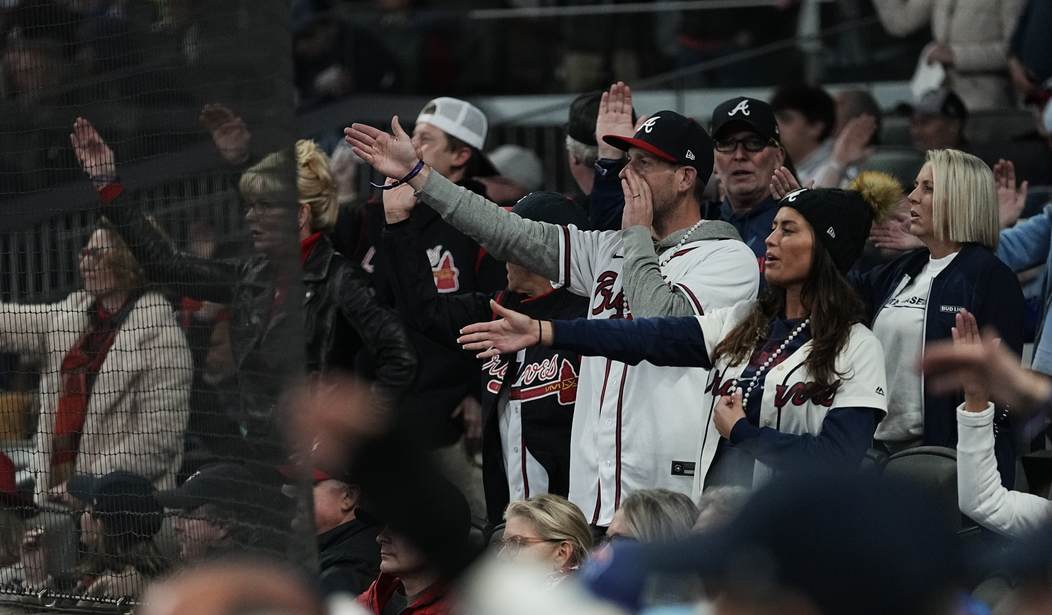Remember when the Atlanta Braves’ “tomahawk chop,” a long-established stadium rallying cry, came under attack for allegedly perpetuating racist stereotypes? That controversy, which flared up in the 1990s and resurfaced last year during the World Series, drew a mixed response from Indian tribes; some linked it to improper cultural appropriation, while others saw it as a distraction from serious issues facing Native Americans.
The debate over the tomahawk chop generated a significant amount of media coverage at the time. However, if considered a matter of “cultural appropriation,” it pales in comparison to an issue currently working its way through the United States Congress. This ill-advised legislation would facilitate creation of brand new tribes out of thin air, and grant them the same rights as existing tribes.
Typically, groups seeking to be recognized by the federal government as sovereign nations must go through a process at the Department of Interior during which their histories are reviewed and carefully examined. This process was established to ensure that legitimate tribes receive the proper recognition they deserve and are protected against groups making false claims.
Several bills currently before Congress would upend this system and create a fast lane for groups who don’t want to — or just can’t — demonstrate their legitimacy; criteria many are unable to meet. For example, one of the groups seeking recognition through Congress has claimed descendancy from several different tribes over the years but has never been able to get its own story straight.
Recommended
The consequences of creating tribes without any factual or historic verification are significant for real tribal nations. When a group latches onto the identity of one or multiple tribes, it opens the door for government-sanctioned cultural appropriation. Even when it doesn’t, however, it has significant implications for existing tribes.
Each time a new tribe is officially recognized, it drains the budgets of both the Bureau of Indian Affairs and Indian Health Services. This has been especially problematic throughout the still-ongoing COVID pandemic, during which both agencies have experienced budget shortfalls.
Recognizing new tribes without the requisite historic vetting also causes tribes to lose their credibility and good name with the general public. Such shenanigans have the further practical effect of undercutting important relationships between tribal leadership and federal officials, even as it dilutes the very meaning of sovereignty altogether.
These are reasons why a coalition of 10 tribes recently wrote to the Senate Committee on Indian Affairs requesting that it “defer consideration of groups seeking federal acknowledgment to the Department of Interior’s Office of Federal Acknowledgment (OFA)” They clearly understand that if one inauthentic tribe succeeds in receiving recognition through Congress today, it could open the floodgates for others attempting to do the same thing tomorrow.
When I served in Congress, there was broad bipartisan support for the existing Department of the Interior process -- a view based on a clear understanding that tribal recognition is not about mere symbolism, but about honoring, respecting, and protecting Native American tribes’ unique identities. This reflected the sentiment that, in order to prevent cultural appropriation and dilution of Native American culture, everyone would be better served to go through the well-established procedures administered by the OFA.
Unfortunately, this reality appears to have escaped some of today’s members of Congress, and if they move forward with their hurried and shortsighted approach to tribal recognition, it will present significant problems for existing tribal nations across the country.
History has already brought our nation’s tribes through more than sufficient travails and tribulations. The last thing they need now is for this appropriation-focused and short-sighted Congress to make their standards of living and rights as sovereign nations weaker rather than stronger.
Hopefully newer senators, including my own state’s recently elected Jon Ossoff and Raphael Warnock, pay attention and will respect the established and well-founded procedures in place, rather than strike out on an ill-advised and short-sighted “new” model.
Bob Barr represented Georgia’s Seventh District in the U.S. House of Representatives from 1995 to 2003. He served as the United States Attorney in Atlanta from 1986 to 1990 and was an official with the CIA in the 1970s. He now practices law in Atlanta, Georgia and serves as head of Liberty Guard.

























Join the conversation as a VIP Member